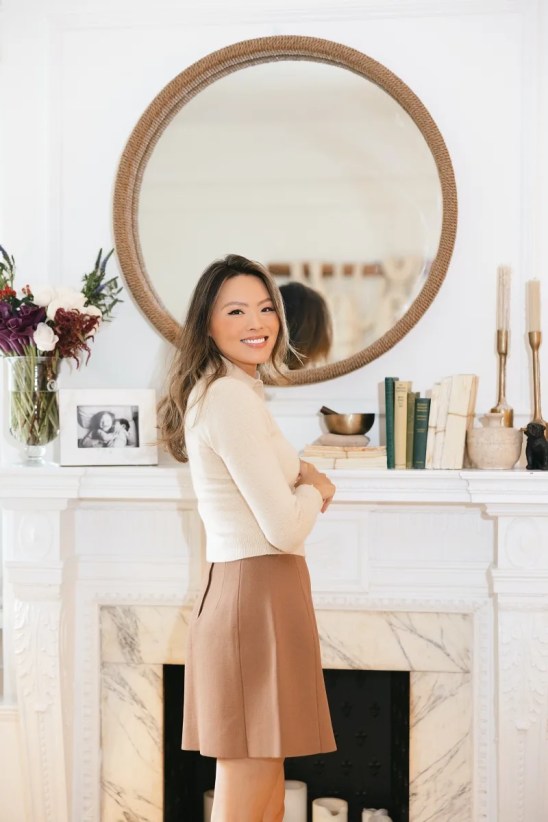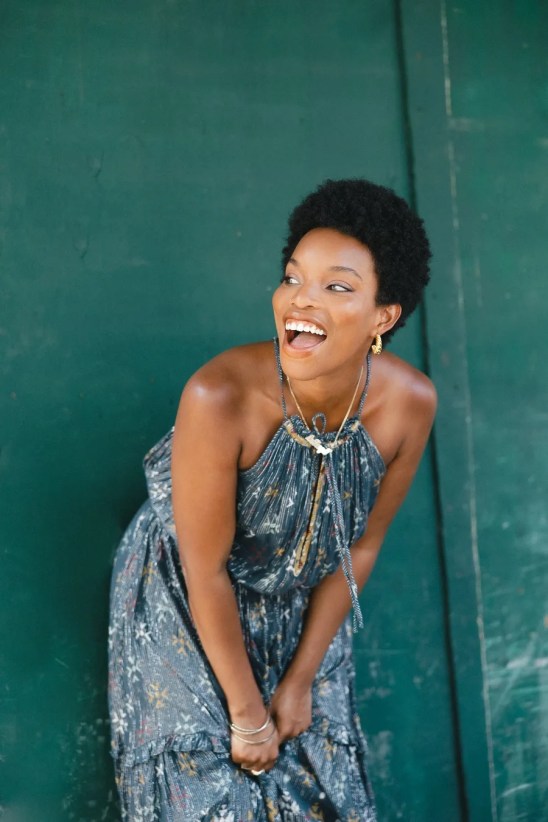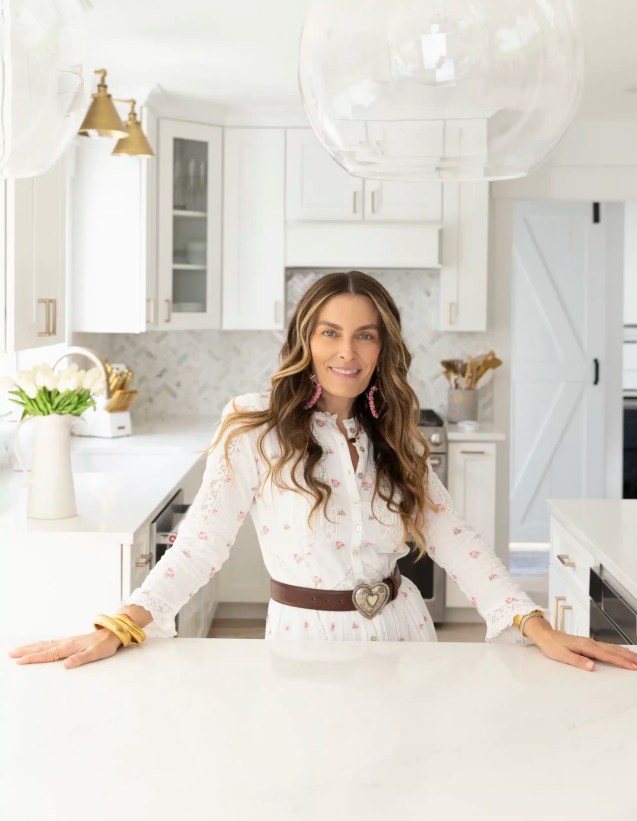
If this were a quiz, and I said that I was thinking of a top New York athlete—one of the best in his sport and at his position—who, as competitive as he is when playing, is also a class-act, thoughtful, friendly, and notably charitable, would you be able to guess who I’m thinking of, or would you need another hint?
What if I also told you that he not only lives in the city, but that he also really enjoys the city—with its overstuffed menu of fashion, music, and food? And that his non-athletic interests have not gone unnoticed: That GQ magazine has chatted with him about his fashion sense; that, for fun, he’s a part-owner of a restaurant and bar in Tribeca (Tiny’s & the Bar Upstairs); and that he once came on “Late Night with Jimmy Fallon” just to play his guitar, jamming out to the Guns N’ Roses rock classic “Sweet Child of Mine”?
Oh, and speaking of children, here’s one final hint: He’s also a family guy. At 33, he’s married to the woman he first started dating when he was 20, and he’s the father to two young daughters (a 3-year-old, Charlise, and a new baby, Juli, born this past March).
Of course, this quiz is not all that difficult since, in all likelihood, you’ve already read the headlines and seen the accompanying photos (not to mention the cover of this magazine), but if you didn’t have this helpful context, would you have guessed that I was talking about the New York Rangers’ superstar goaltender Henrik Lundqvist?
Lundqvist’s storied hockey career includes an array of hard-earned accolades that range from leading his native Sweden to a gold medal at the 2006 winter Olympics in Torino, Italy, to winning the NHL’s prestigious Vezina Trophy (given to the league’s top goaltender) in 2012. And for the past 10 years that he’s been the Rangers’ goalie, Lundqvist has been so wonderful, and so consistently wonderful, that Rangers’ fans long ago anointed him “King Henrik.” But in our interview, he wore his royalty lightly, if at all. He alluded a few times to being a really intense guy, but, in fact, he couldn’t have been more welcoming and gracious.
Where is the joy and the fun at this point in your career?
I love the competition and the intensity of being out there. Even for practice, it’s fun to compete against the guys. Being part of a team, just sitting in the locker room, and traveling together—after a couple months off in the summer, you miss that. It’s so much fun to come back and be part of that group and accomplish something together. That feeling is really special—I’m turning 34 and I still love the game and everything about it.
What’s the hardest part about being a goaltender?
The hardest part about being a goalie is to be in the right place mentally because you’re under so much pressure. Technically, you work on things every day in practice, but it all comes down to how you see and think in the game and how you react under pressure.
Do you get nervous? How do you handle the pressure?
I enjoy that feeling of being on your edge. You can feel you are really nervous, but you understand it’s part of it. You don’t see it as a problem, you see it as a great thing. You feel alive. When you step out there and there are 18,000 people and there’s a lot of pressure, it’s in that moment when you succeed—it’s a great thing… You also get a positive feeling. You embrace it and it becomes a positive thing instead of putting too much pressure and “what ifs” [and] a negative spin [on the situation]… You always have to push yourself before you step out and get that confidence.

How do you keep your ego at bay?
I think it starts with the one thing that brought me here, which is how I compete. It is so important for me to win and to get better—that has been pushing me throughout my career. Having a twin brother, we were always competing; we were supportive [of each other], but always really competing. I’m constantly challenging myself to get better… [I also] have a really good coaching staff. I have been working with the same goalie coach for over 10 years. He has challenged me in many good ways and kept me positive.
What’s harder: Hockey or reasoning with a 3-year-old?
Raising a family is challenging. It’s so many different things you need to plan, prepare, and think about. With hockey, you come to the rink and practice—it’s pretty black and white with what you need to do and what you need to work on. When you need to discuss with a 3-year-old how to do a certain thing or plan for certain things, you have to plan, but at the same time you have to plan for unexpected things. As much as it’s rewarding, it’s also challenging, which is fun.
Tell us about your experience becoming a father—what were the joys and challenges?
When you have a baby, you aren’t sure what to expect really from the emotions and what to needs to be done. You try to figure it out as it progresses. I was surprised by how much your emotions grow towards your child after 5, 6, 7 months… Even after a year, I can feel how it’s growing on me, the emotions and feelings you have towards [your children]. I think that’s very cool. In the beginning, it’s hard because it’s someone there that you haven’t seen and haven’t experienced anything with. And, the more stuff you do together, and the more you see of that person, the more you love them. That is the coolest thing.
Do you enjoy raising kids in the city?
It is so different from what I experienced as a kid. I grew up in a town of 1,500 people. The school was very small. It was a different environment. There are different challenges here, but also bigger opportunities for kids to experience stuff. I’m excited to see my kids meet different people and learn about culture and get a better understanding of the world. New York is kind of a world city—you see so many different backgrounds and cultures. By the age of 10 or 12, my kids will have a pretty good understanding of what’s going on in the world. We plan to spend a lot of time here and then go back to Sweden in the summer to see our friends there. I’m excited they are getting this opportunity. It’s not going to be easy, but I see the upside.
Are you and your wife, whom you started dating when you were 20, on same page as parents?
We are pretty similar, I would say. I think for me, [I’m some-times different] as a person in summertime and wintertime. I’m more intense and more under pressure in the winter, so when things don’t go my way during the wintertime, I get more stressed and annoyed. With kids, you really have to take a few deep breaths and you try to organize things. My wife is very organized, which is a great thing. When you play games and have a hectic schedule, it helps to come home to a home that has some sort of structure. In the summertime, I am much more relaxed and it’s easier for people around me to enjoy [spending time with me].
In terms of cultural differences and raising kids, how do Sweden and America compare?
I think here, there is a focus to train kids earlier… When I look at Sweden, it’s more about playing and having fun until age 6 or 7. Here, at 3 years old it’s like: “What can your kids do?” And you’re in meetings and evaluations. When I first heard about it, it was a little shocking, but at the same time, [young kids] are at an age where they can take in so much information. The good thing for me is that my kids will speak English and Swedish before they’re 5. That’s a great thing to have, but [schools] are also pushing for another language. Sweden is more focused on playing, and here it’s more about teaching early.
Growing up in a small town in Sweden, did you have any sense of wanting a life like the one you have now?
Back then, my focus was just playing hockey and sports. My life was all about sports: Soccer, skiing, hockey. It’s wasn’t so much where I would end up, but it was more: “What will I do?” That was the main focus and the dream.
When you decide to retire, do you want to continue to raise your kids in New York or go back to Sweden?
We’ve talked about [going back to Sweden] sometimes. The lifestyle is so different, staying here and going home. [My wife and I] both love New York and the US and the way people live here. The big thing that keeps pulling us back is our family and friends. It will be a big decision once I’m done playing, but we’re keeping it open.
Tell us about your interests outside of hockey and how you relax.
I always like to do different things and go my own way… I have always been interested in music and fashion… Hockey is such a big part of my life and lot of focus goes into that. When I do other things, I get a break from my intensity, and I need it. I put my mind on something else and it makes me relax because I’m a really intense guy when it comes to hockey. It’s important to get that break from the game and focus on something else.
You mentioned music—do you play guitar for your children?
A little bit. Charlise, the oldest, sometimes I play for her. She likes to dance. In the park there are a lot of musicians—guitar players and drummers—and she likes to dance and sing. A lot of the time I spent playing guitar with friends in a band 4-5 years ago is now more focused on my family.
You’ve also been involved in a lot of great charity work with a focus on children and families.
Doing that stuff now [that I have children] feels even more important. I came here 10 years ago and I had done some charity work back in Sweden. Coming here, I was impressed with how people put their time and money into helping others. The Garden of Dreams foundation at Madison Square Garden, they’ve done a great job, and I’ve been the spokesperson for them for a couple years. But, I also started my own foundation, [the Henrik Lundqvist Foundation]. I wanted to reach some people back home and have more control in the future. There’s going to be one day when I am not playing here, but some of the [charity work] I’m doing now could be something that I do here after my career.
Does your family help keep you focused when you work so hard?
Family and charity work give you perspective in life on what’s important and what’s not. I think my priorities have changed since I came over here. I was 23 and now I’m 33, and my life is very different. When I look at my situation of having two kids, when I come home and open the door after a tough loss and am very disappointed and upset, my focus changes pretty fast. I ask how the kids are doing, what happened that day. It’s easier to let go, but it hasn’t changed how I prepare or whether or not I cut corners just because I have a family. It helps me get away from the game and get a break because I am such an intense person. If I walked around and thought about hockey every day, I would be tired… Family is definitely a part of my life that helps me get away.
Eric Messinger is the editor-in-chief of New York Family.
To learn more about the Garden of Dreams Foundation, visit gardenofdreamsfoundation.org! To learn more about the Henrik Lundqvist Foundation, visit hlundqvistfoundation.com!
























